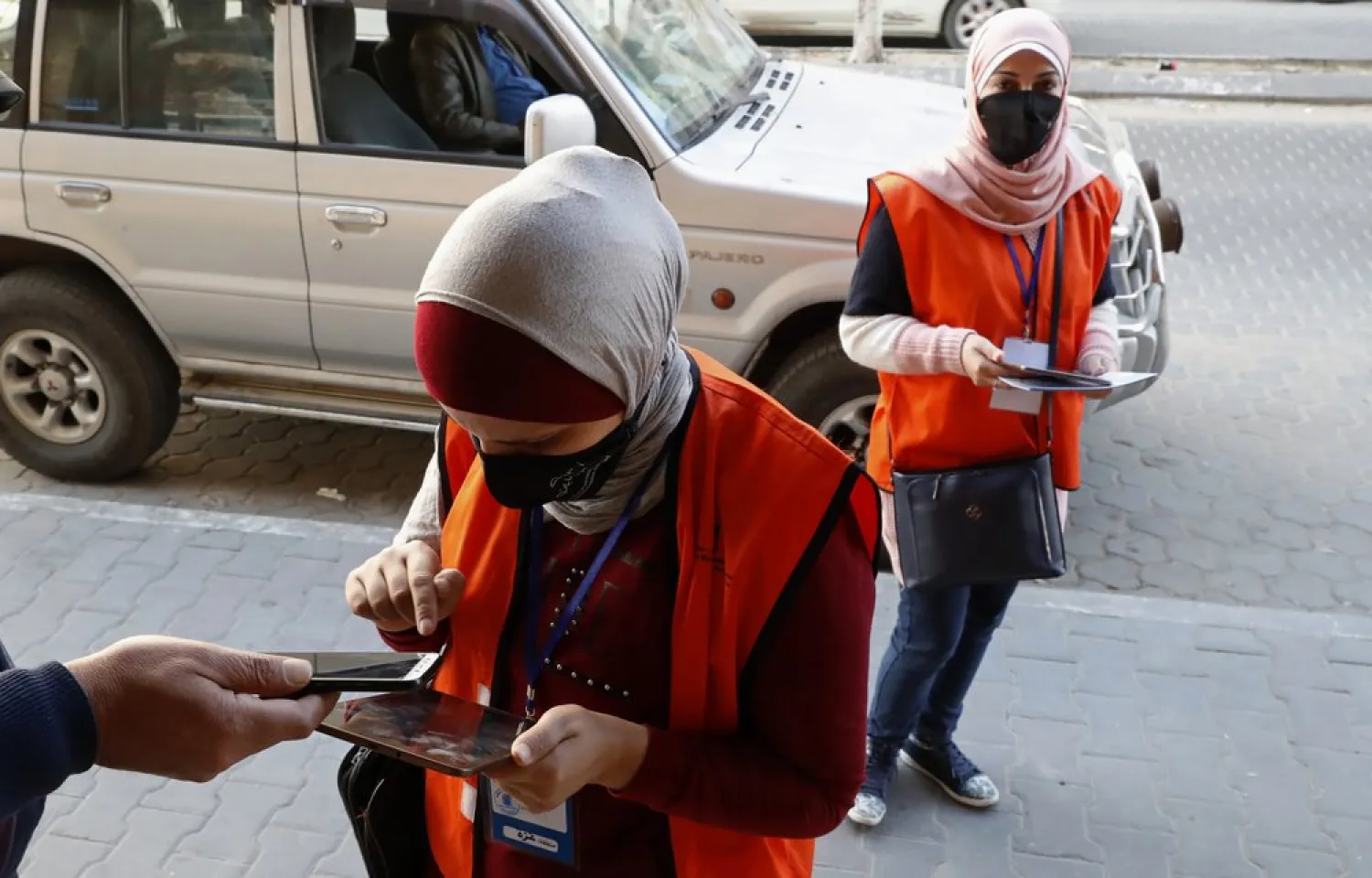Palestinian President Mahmoud Abbas' Fatah party and his Hamas rivals would each fall well short of a parliamentary majority if elections are held in May, forcing them to partner with each other or smaller parties to form a government, according to a poll released Tuesday.
Abbas has decreed Palestinian elections for May 22 in what would be the first general vote since Hamas won a landslide victory in 2006. The process appears to be on track, but disputes between the long-feuding factions could cause the vote to be delayed or canceled.
The poll by the Palestinian Center for Policy and Survey Research found that if elections were held today a single Fatah list would win 43% of the vote and Hamas would win 30%, with 18% of voters undecided.
But a faction led by Mohammed Dahlan, a former senior Fatah leader who had a falling out with Abbas, would win 10%. Nasser al-Kidwa, who was kicked out of Fatah after forming his own list, would win 7%. They would mainly draw votes from Fatah, dropping its share to around 30%, the poll said.
The well-regarded PCPSR carried out face-to-face interviews with 1,200 Palestinians across the occupied West Bank and Gaza, with a margin of error of 3%.
PCPSR director Khalil Shikaki said Fatah is seen as best able to address most of voters' top concerns, including restoring national unity, improving the economy and lifting the Israeli blockade of Gaza that was imposed after Hamas seized power in 2007. But Fatah's internal rivalries could weaken it vis-à-vis the more disciplined and unified Hamas.
“Both Fatah and Hamas have major problems,” Shikaki told reporters. “Hamas' main problem is the perception that it cannot address the major challenges. Fatah's major problem is the splits.”
He said it appears unlikely that even a late swing toward Hamas would be enough for the group to repeat its shock victory of 2006. That led to months of factional bickering culminating in a week of street battles in Gaza in which Hamas drove out forces loyal to Abbas.
Since then, Hamas' rule of Gaza has eroded its popularity, and the lavish lifestyle adopted by some of its exiled leaders means it can no longer campaign as a scrappy underdog that puts its principles ahead of material comforts.
“It seems clear that Hamas does not have a chance to have a majority in the parliament,” Shikaki said, adding that the most likely scenario would be a national unity government or a Fatah-led coalition including smaller parties.
He cautioned, however, that unforeseen events — such as a prisoner exchange between Hamas and Israel or Israel's targeted killing of a senior militant — could swing public opinion in Hamas' favor between now and the election.
It's unclear how the international community would respond to the formation of a government led by or including Hamas, which has fought three wars with Israel and is considered a terrorist group by Western countries. The international boycott of Hamas following the 2006 elections was one of the main factors driving the internal rift.
Shikaki said most voters seem to have taken the possible consequences of a Hamas victory into consideration, which may account for some of Fatah's popularity.
“People's decisions regarding which party to vote for seem to be clearly based on cost-benefit calculations,” he said.









